#Amelia Possanza
Explore tagged Tumblr posts
Text
[“After I had learned enough about lesbians to hold my own, I reached out to Joan Nestle for an interview. We made our own oral history video, one that I hope will live on in her archive as well as mine.
“Is this helping?” she asked early on in our conversation. “You have to put up with me because I’m eighty-one.”
I thought I would be intimidated by her, but I was charmed. She asked about my cat, asleep in my video background. She brought her partner on screen, the woman who had led her to leave New York for Australia decades ago.
Because the Lesbian Herstory Archives was a project of the 1970s, I feared that Joan would share her contemporaries’ narrow definition of lesbian. She dispelled my fear before I could even come up with the courage to ask. “To me, lesbian incorporates queer, it incorporates trans, it incorporates bi, it incorporates intersex, because lesbians occupied all those positions.”
I had planned to just ask her about the details of Mabel’s life. “The loss to me personally,” she said, “is too huge to even talk about, even after all these years.” Instead, we had a conversation full of digressions. She took us from Eleanor Roosevelt (lesbian) to sex workers (also lesbian) to her own reasons for becoming a lesbian archivist. “The archives was created to break the concept of fame,” she told me. “If you have the courage to touch another woman and to claim that touch . . . that, for us, was fame enough.” ]
amelia possanza, from lesbian love story: a memoir in archives, 2023
105 notes
·
View notes
Text
New Releases: May 28, 2024
Middle Grade Noah Frye Gets Crushed by Maggie Horne Noah Frye just had the Best Summer Ever. Not only did she have an epic time at science camp, but her new camp friend Jessa is going to Noah’s school in the fall. Noah can’t wait to introduce Jessa to her best friends Zoey and Luna when classes start. But when the friend group is reunited after their summer apart, something seems to have changed:…

View On WordPress
#A Last Supper of Queer Apostles#Amelia Possanza#Anna-Marie McLemore#Emma Copley Eisenberg#Flawless Girls#Housemates#Jennifer Dugan#KB Brookins#Lakelore#Lesbian Love Story#Maggie Horne#Miel Moreland#Naomi Kanakia#Noah Frye Gets Crushed#Pretty#Robin Easter#Something Like Possible#The Default World#The Ride of Her Life#Upstaged
9 notes
·
View notes
Text
30 Days of Literary Pride - June 9

Lesbian Love Story: A Memoir in Archives - Amelia Possanza
4 notes
·
View notes
Note
any nonfic book recs by lesbian authors? want to get into more feminist readings. whatever ya got :)
Hi! we don’t actively track down every author’s sexuality when we purchase their books so I don’t want to 100% guarantee when it’s possible some of these folks may be bi or some other flavor of queer, but I do imagine a lot of our non-fiction that’s about lesbians is also by lesbians, here are a few;
The Lesbian South by Jamie Harker
Lesbian Love Story: A Memoir in Archives by Amelia Possanza
No Modernism Without Lesbians by Diana Souhami
Boots of Leather Slippers of Gold by Elizabeth Lapovsky Kennedy & Madeline D. Davis
Mouths of Rain: An Anthology of Black Lesbian Thought by Briona Simone Jones
A Burst of Light (and anything else really) by Audre Lorde
Moby Dyke by Krista Burton
Rust Belt Femme by Raechel Anne Jolie
We Walk Alone by Ann Aldrich
& tons more!
35 notes
·
View notes
Photo

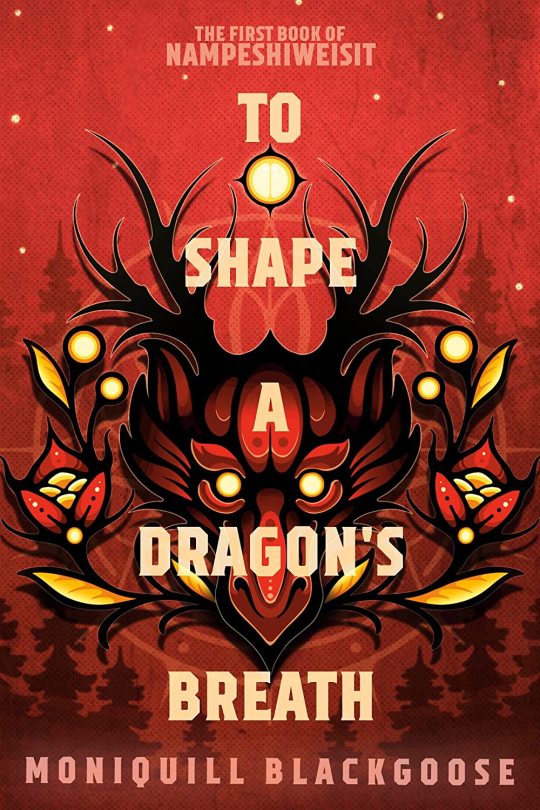


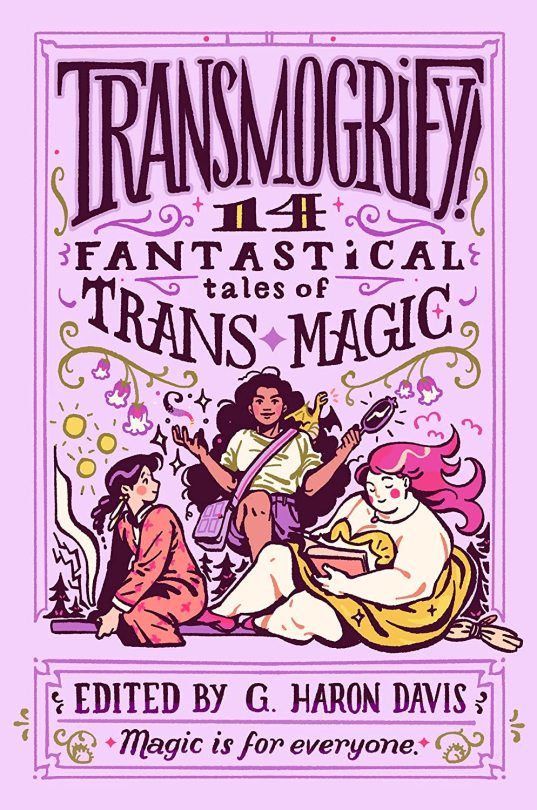
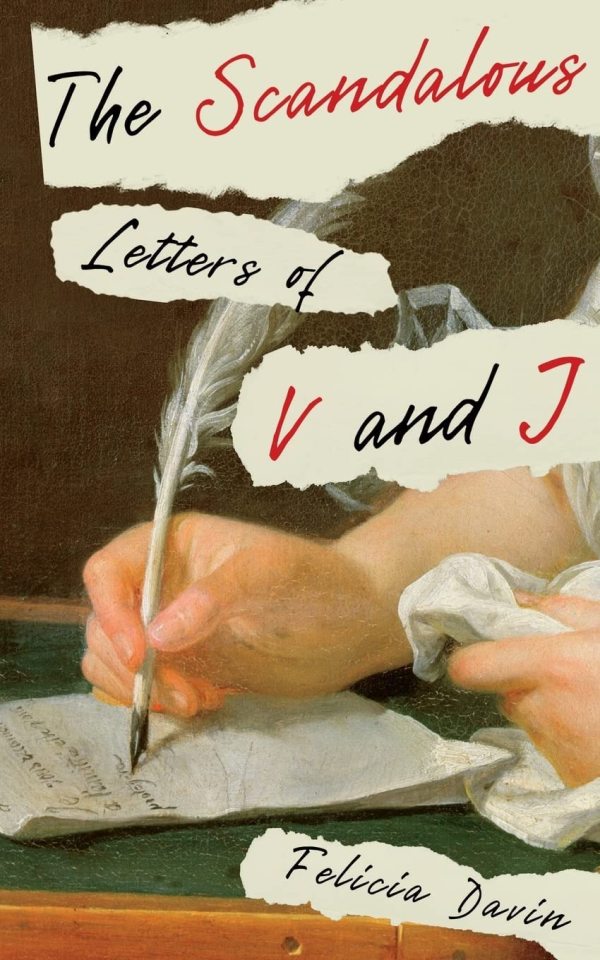

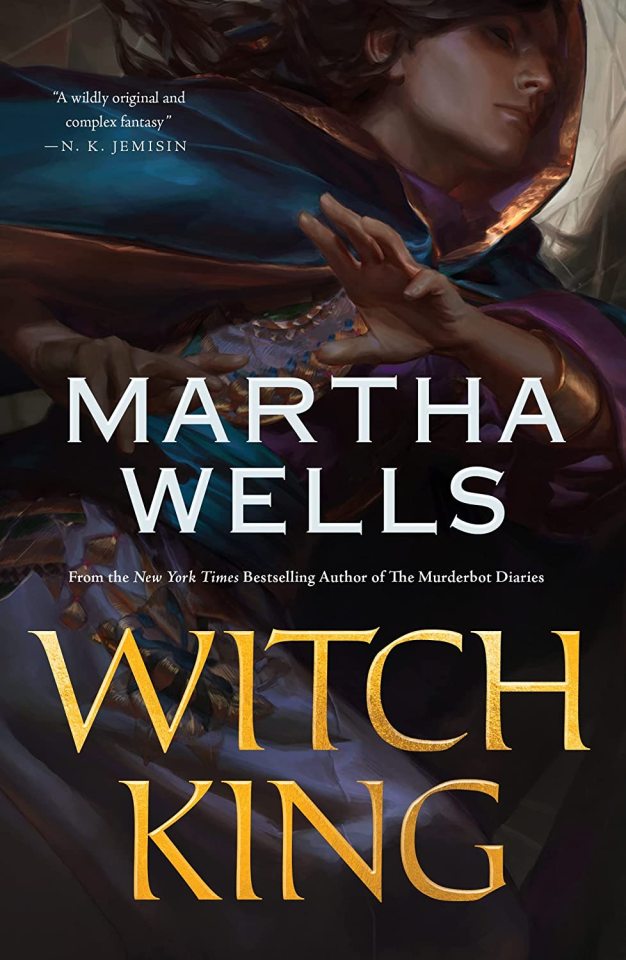

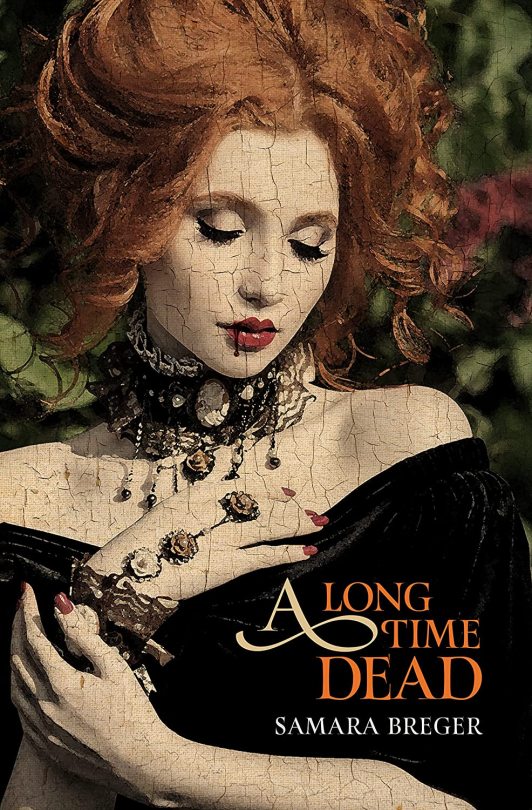
May Booooks! Another absurd month in which there are way too many good books coming out! I'm really excited for a lot of these though Dragonfall and The Scandalous Letters of V and J might be the ones I'm most excited about. I've read a bit of V and J and it is such a good use of the formate and I'm always here for a well done queer historical fiction. I've heard amazing things about Yellowface soooo I'm stoked to read it (also the only book on the list that I don't think has queer rep, but I could be wrong). Oh also in the UK Bitterthorn is coming out, but I can't find a US release date so I'll just. wait for it (if anyone knows a way to get it in the US let me know). Oh and assaians, vampires, multiple dragons, magic and romance. Yeah it looks like a good month.
Any books that you are really excited about that I might have missed?
Dragonfall by L.R. Lam (2nd)
To Shape Dragon's Breath by Moniquill Blackgoose (9th)
Girls Like Girls by Hayley Kiyoko (May 30th)
Yellowface by R. F. Kuang (16th)
Transmogrify!: 14 Fantastical Tales of Trans Magic Edited by Haron Davis (16th)
The Scandalous Letters of V and J by Felicia Davin (16th)
Lesbian Love Story: A Memoir in Archives by Amelia Possanza (May 30th)
Witch King by Martha Wells (30th)
Venom & Vow by Anna-marie Mclemore and Elliott McLemore (16th)
A Long Time Dead by Samara Breger (May 16th)
#upcoming books#upcoming releases#2023 books#booklr#2023 book releases#queer sff#queer books#lgbtq books#sff books#dragonfall#to shape dragon's breath#l.r. lam#moniquill blackgoose#Venom and vow#Venom & vow#transmogrify#Transmogrify: 14 Fantastical Tales of Trans Magic#witch king of angmar#yellowface#Anna-marie McLemore#martha wells#r. f. kuang#the scandalous letters of v and j#felicia davin#Transmogrify!: 14 Fantastical Tales of Trans Magic#novels#girls like girls#hayley kiyoko#Lesbian Love Story#Amelia Possanza
111 notes
·
View notes
Text
December reads
asterisk = reread
Blood to Poison by Mary Watson
Mimosa by Archie Bongiovanni
The Mossheart’s Promise by Rebecca Mix
The Body’s Question by Tracy K. Smith
Something is Killing the Children by James Tynion IV et al
The Pomegranate Gate by Ariel Kaplan
Something More by Jackie Khalilieh
The Tent Generations: Poems edited by Mohammad Sawaie
Domestic Work by Natasha Trethewey
Hijabi Butch Blues by Lamya H
Old Enough by Haley Jakobson
Prom and Other Hazards by Jamie Sullivan
Poems on Friendship by various authors
Freedom is a Constant Struggle: Palestine, Ferguson, and the Foundations of a Movement by Angela Y. Davis
Before the Next Bomb Drops by Remi Kanazi
A Shot in the Dark by Victoria Lee
Rosewater by Liv Little
Cassandra in Reverse by Holly Smale
Fingersmith by Sarah Waters
Unraveller by Frances Harding
Night of the Living Rez by Morgan Talty
OKPsyche by Anya Johanna DeNiro
The Rachel Incident by Caroline O’Donoghue
Lesbian Love Story: A Memoir in Archives by Amelia Possanza
The Narrow by Kate Alice Marshall
Arden Grey by Ray Stoeve
The Best American Poetry edited by Matthew Zapruder and David Lehman
The House in Poplar Wood by K.E. Ormsbee
How We Do It: Black Writers on Craft, Practice, and Skill edited by Jericho Brown
The Adam of Two Edens by Mahmoud Darwish
The Feast Makers by H.A. Clarke
Dear Wendy by Ann Zhao
Gay Club! by Simon James Green
Beating Heart Baby by Lio Min
The King’s Assassin: the Secret Plot to Murder King James I by Benjamin Woolley
All Systems Red by Martha Wells*
Judas & Suicide by Maya Williams
You Let Me In by Camilla Bruce
I Feed Her to the Beast and the Beast Is Me by Jamison Shea
Currently reading
Light in Gaza: Writings Born of Fire edited by Jehad Abusalim, Jennifer Bing, and Mike Merryman-Lotze
Salt Houses by Hala Alyan
Kings, Queens, and In-Betweens by Tanya Boteju
The Secret Life of Albert Entwhistle by Matt Cain
#december felt very long and busy so i truly do not know how i managed to read this much!!#and yet somehow i did#2023 reads#lulu speaks#books#lulu reads
2 notes
·
View notes
Note
6
Was there anything you meant to read, but never got to?
oh yeah, I returned a lot of library books simply because I ran out of time/didn't have the energy/it didn't feel right in the moment... some titles include Lesbian Love Story by Amelia Possanza, VenCo by Cherie Dimaline, The Sleeping Car Porter by Suzette Mayr... all books I still plan to read eventually!
2 notes
·
View notes
Text
@deankarolina tagged me to do TWO of these and then i promptly forgot. anyways here they are i love talking abt myself <3
5 songs -> i'll shuffle my current playlist & my driving playlist playlist and give u: casual, chapell roan; expert in a dying field, the beths; good scare, torres; fast car, tracy chapman; AND bridge over troubled water, simon & garfunkel
&&& then last/current/future books!
last book i read (and literally Just finished) was deep as the sky, red as the sea by rita chang-eppig which i enjoyed a lot! currently reading a darker wilderness: black nature writing from soil to stars edited by erin sharkey (tho "current" here means i havent Actually started it and need to go dig it out of my bag) ... future, i have a couple of books on hold at the library that i'm hoping to get soon which include killingly, by katharine beutner And lesbian love story, by amelia possanza And the changeling, by victor lavelle and then a few that are coming out in the next few months incl land of milk and honey, by c pam zhang and nadia, by christine evans
i tag anyone who wants to do either both any of these!!! tag me i love seeing what ppl are reading !!!!
3 notes
·
View notes
Text
" He hardly remembers a time when she wasn't sick. 'I hate being sad. There's so much further for me to fall. Losing her carved out a new bottom.' - Amelia Possanza
2 notes
·
View notes
Text
september 2024 wrap-up - nonfiction

this month i read one (1) non-fiction book.
lesbian love story: a memoir in archives by amelia possanza 📖 🌟🌟🌟🌟
i greatly enjoyed this. i loved the small biographical accounts of historical lesbians that the author presents, i loved the narratives surrounding how she came across each historical figure and what research she did on them and how, and i loved the little bits of amelia possanza's own life story that the reader gets and how they're intertwined with the historical accounts.
it's a really nice read if you're interested in queer history, particuarly lesbian history, but aren't in the mood for a more textbook-esque history book like odd girls and twilight lovers.
0 notes
Text
[“This new community Gloria and Cherríe and Audre opened through their writing made room for a multitude of lesbians, and also the multitude that existed within Gloria. My college linguistics professor shared only one part of the woman when she handed out xeroxed PDFs that described how Gloria was punished in grade school every time she spoke Spanish—three licks on the knuckles with a sharp ruler, like what the nuns would give my father when he spoke out of turn. We analyzed how Anzaldúa mixed languages, one of the first to capture the way her community spoke, without ever translating for her audience. The professor chose which parts of her to share and excised the rest.
To this day I’m not sure how my professors kept up this convenient fiction when Gloria, unlike the lesbians before her, left behind volumes of material about her identity, sexual and otherwise, more than I could possibly know what to do with. Borderlands. Her contributions to Bridge. Countless unfinished works she references in interviews. Her personal letters and papers, held at the University of Austin. Interviews. In academia, Gloria wrote, I find that my lesbianism gets hidden behind the overt race stuff.
Her lesbian identity was so important to her that she claimed it in spite of the fact that she could not live up to the standard of purity that the separatists demanded of those who set foot on their lands. I have yet to have a full sexual relationship, a live-in relationship with a woman. She mentions a man lover without dismissing or qualifying their relationship. She embraces her contradictions and makes no effort to resolve them just to make others comfortable. She lays bare how the pain caused by her hormonal imbalance complicated her relationship to sex and delayed her interest in physical intimacy. For a while, I just didn’t have a sexuality. Do you think I’m a lesbian when I’m celibate? Then, in spite of her Catholic upbringing and in spite of the heterosexuality that surrounded her, she made the choice to be queer. Lesbianism was yet another marker of the duality, the plurality, that lived within her. I, like other queer people, am two in one body, both male and female.
Even though Gloria chose lesbian, she did not want to be pigeonholed as a lesbian writer. Middle-class, white, heterosexual people had the privilege of being simply a writer, no pesky little adjective out front to qualify their work. To call Gloria a lesbian writer would deny the other aspects of her identity, the other parts of her self. One’s own body is not one entity. She did not limit Bridge to contributions from lesbians. In place of separatism, which would ask her to deny not only the male within but also the men who joined her in the fight for liberation, she believed in El Mundo Zurdo, the Left-Handed World, a world where the colored, the queer, the poor, the female, the physically challenged would be empowered. I’m married to the writing. The writing is my lover. I call her la Musa Bruja.”]
amelia possanza, from lesbian love story: a memoir in archives, 2023
53 notes
·
View notes
Text
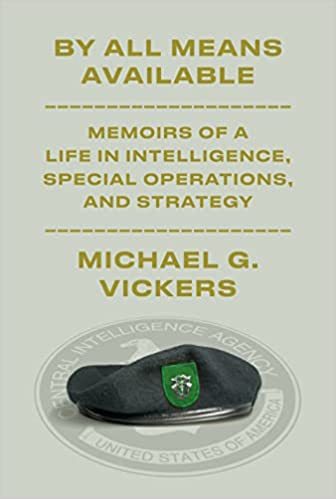
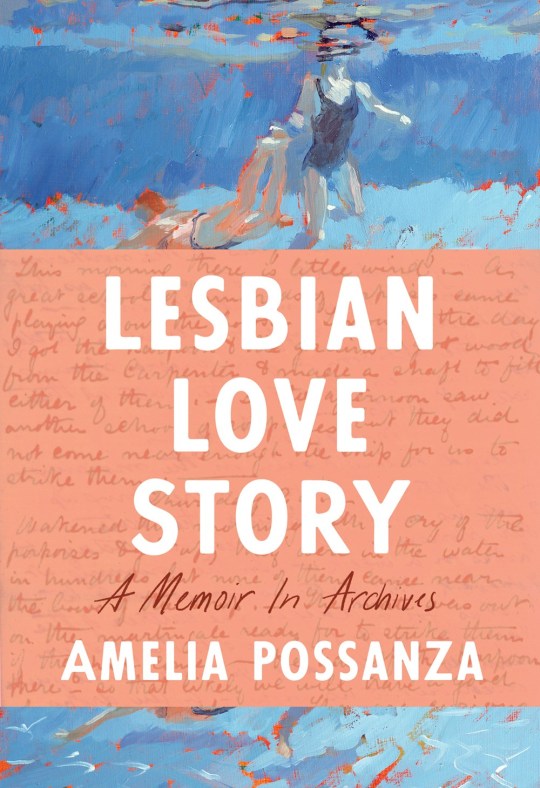


Nonfiction Thursday: New Memoirs
By All Means Available by Michael G. Vickers
In 1984, Michael Vickers took charge of the CIA’s secret campaign against the Soviets in Afghanistan. Inheriting a strategy aimed at imposing costs on Russia, Vickers transformed the campaign into an all-out effort to help the Afghans win their war. More than any other American, he was responsible for the outcome in Afghanistan that led to the end of the Cold War.
In By All Means Available, Vickers recounts his remarkable career, from his days as a Green Beret to his vision for victory in Afghanistan to his role in waging America’s war on terror at the highest levels in government. In captivating detail, he depicts his years in Special Forces, revealing how those experiences directly influenced his approach to shaping policy, and offers a deeply informed analysis of the greatest challenges facing America today.
This is a riveting and illuminating insider’s account of the military and intelligence worlds at every level.
Lesbian Love Story by Amelia Possanza
When Amelia Possanza moved to Brooklyn to build a life of her own, she found herself surrounded by queer stories: she read them on landmark placards, overheard them on the pool deck when she joined the world’s largest LGBTQ swim team, and even watched them on TV in her cockroach-infested apartment. But these stories rarely featured lesbians who could become her role models, in romance as in life.
This is the story of Possanza’s journey into the archives to recover the stories of lesbians in the 20th Century: who they were, how they loved, why their stories were destroyed, and where their memories echo and live on. Centered around seven love stories for the ages, Possanza’s hunt takes readers from a Drag King show in Bushwick to the home of activists in Harlem and then across the ocean to Hadrian’s Library, where she searches for traces of Sappho in the ruins. Along the way, she discovers her own love—for swimming, for community, for New York City—and adds her own record to the archive.
At the heart of this riveting, inventive history, Possanza asks: How could lesbian love help us reimagine care and community? What would our world look like if we replaced its foundation of misogyny with something new, with something distinctly lesbian?
What the Dead Know by Barbara Butcher
Barbara Butcher was early in her recovery from alcoholism when she found an unexpected a job at the Medical Examiner’s Office in New York City. The second woman ever hired for the role of Death Investigator in Manhattan, she was the first to last more than three months. The work was gritty, demanding, morbid, and sometimes dangerous – she loved it.
Butcher (yes, that is her real name, and she has heard all the jokes) spent day in and day out investigating double homicides, gruesome suicides, and most heartbreaking of all, underage rape victims who had also been murdered. In What the Dead Know, she writes with the kind of New York attitude and bravado you might expect from decades in the field, investigating more than 5,500 death scenes, 680 of which were homicides. In the opening chapter, she describes how just from sheer luck of having her arm in cast, she avoided a boobytrapped suicide. Later in her career, she describes working the nation’s largest mass murder, the attack on 9/11, where she and her colleagues initially relied on family members’ descriptions to help distinguish among the 21,900 body parts of the victims.
This is the fascinating and stunning real-life story of a woman who, in dealing with death every day, learned surprising lessons about life—and how some of those lessons saved her from becoming a statistic herself. Fans of Kathy Reichs, Patricia Cornwell, and true crime won’t be able to put it down.
When the World Didn't End by Guinevere Turner
On January 5, 1975, the world was supposed to end. Under strict instructions from her Family Leader, seven-year-old Guinevere Turner put on her best dress, grabbed her favorite toy, and waited for her salvation--a spaceship that would take her and her peers to live on Venus. But the spaceship never came.
Guinevere did not understand her family was a cult. She spent most of her days on a compound in Kansas, living with dozens of other children who worked in the sorghum fields and roved freely through the surrounding pastures, eating mulberries and tending to farm animals. But there was a dark side to this bucolic existence: When selected girls in her community turned twelve or thirteen, they were "given" to older men on the compound as wives in training.
Then, at age eleven, Guinevere's world as she had known it ended. Her mother, from whom she had been separated since age three, left the Family with a disgraced member, and Guinevere and her four-year-old sister were forced to go with her. Traveling outside the bounds of her cloistered existence, Guinevere was thrust into public school for the first time, a stranger in a strange world with homemade clothes, clueless to social codes. Now, in the World she'd been raised to believe was evil, she faced challenges and horrors she couldn't have imagined.
Drawing from the diaries that she kept throughout her youth, Guinevere Turner's memoir is an intimate and heart-wrenching chronicle of a childhood touched with extraordinary beauty and unfathomable ugliness, the ache of yearning to return to a lost home--and the slow realization of how harmful that place really was.
#memoir#autobiography#biography#nonfiction#nonfiction reads#nonfiction books#new library books#reading recommendations#reading recs#book recommendations#book recs#tbr#tbr pile#to read#booklr#book tumblr#book blog#library blog
0 notes
Text
Antonio Velardo shares: Personal Reflections on Parenting, Lesbian History and Autism by Fran Hoepfner
By Fran Hoepfner New books by Heidi Julavits, Amelia Possanza and Fern Brady explore a future of self-discovery by mining the past. Published: July 11, 2023 at 01:48PM from NYT Books https://ift.tt/d7wjJv6 via IFTTT

View On WordPress
0 notes
Link
0 notes
Link
New story on NPR: 'Lesbian Love Story' unearths a century of queer romance https://ift.tt/WSaF1sU
1 note
·
View note
Text
#30DaysofPride: Day 4- Mabel Hampton
Today’s icon is special. I promise we’ll go back to people who are living tomorrow but I am currently reading/listening to “Lesbian Love Story: A memoir in archives” by Amelia Possanza and so I’m thinking about Mabel Hampton. You may know this face from history, you may not. But this is Mabel Hampton, her story was one that stuck out to me. Her story starts when she was 8 years old. She ran…
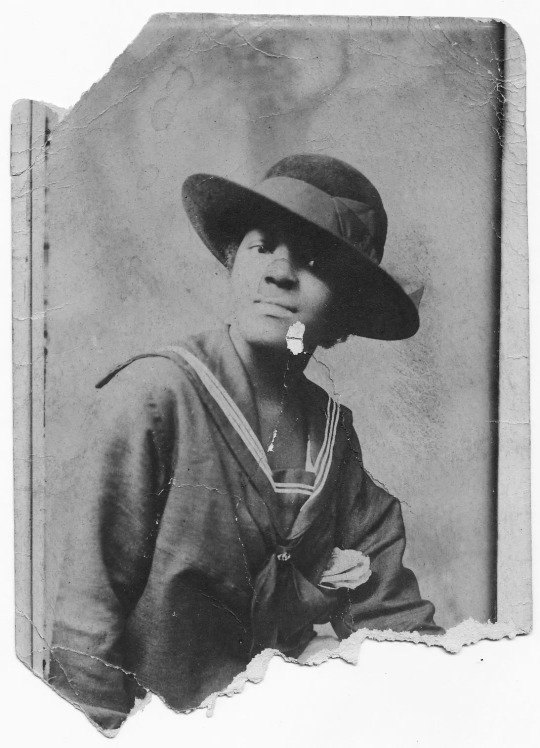
View On WordPress
#30DaysOfPride#activism#Joan Nestle#lesbian#Lesbian Herstory Archives#lgbt#LGBTQIA#LHA#Mabel Hampton#queer#Queer Icon#queerhistory#visibility
0 notes